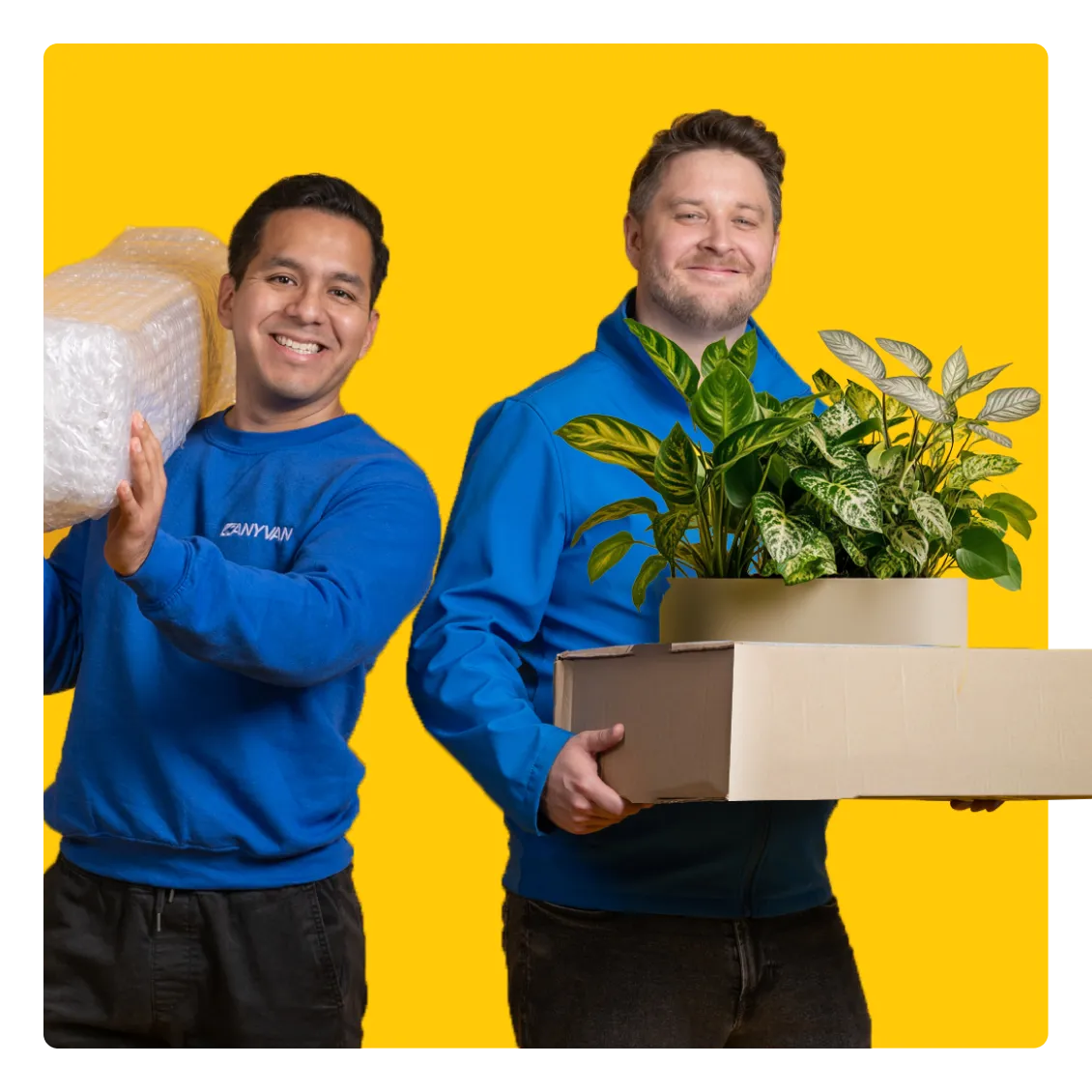Before packing
The packing process is fundamental, so its best to create a plan before you begin. Planning comes at the top of our moving house checklist and will help you get through your house move in an organised fashion.
Plan how you will pack each room. Start at the top of the house and move downwards. If you have a loft, it's a good idea to sort it out first. Label each box with the room to which it belongs.
Select what packing materials you need. Estimate how many boxes you will need (though most people significantly underestimate how many items they have!) and get these well in advance. Find boxes in various sizes and think about other things you will need, such as tape and bubble wrap.
Take some time to sift through your belongings and have a clear-out. Then, you can make up a box for charity donations.
Packing hacks
Everyone appreciates tips that save time and money. With our years of expertise in removals, we’ve picked up some helpful packing tips to help when moving house.
Labelling - empty all your appliances and pack the accessories separately, such as wires. Make sure you take note of which wire belongs to which accessory. You can do this by coiling your wire and putting masking tape around it, then writing the appliance it connects to on the tape.Important items - pack important documents, such as birth and marriage certificates, and keep them safe. It would be ideal for carrying all passports and important information in the ‘essentials’ box or on your person during the trip; after all, misplacing your passport is way worse than losing a lamp.Essentials - pack a clear plastic box with things you'll need right away. Items such as a toothbrush and phone charger are essential items you'll need to use on day one in your new house, so make them easy to find.Packing cables - tangled cables are a nightmare, so you have to take care when packing them. Why not try rubber bands, zip-ties or toilet roll tubes for a more eco-friendly option? They can be handy holders for cables (and can be easily written on to tell your wires apart).Packing heavy items - pack books and other heavy objects in small boxes and try to make the box manageable, especially if using cardboard boxes - remember to put heavier ones on the bottom. Packing tips like this one might be common sense, but they’re still important to mention. Putting your heavy boxes below the lighter ones makes for a sturdier base and ensures no breakable items will get crushed during the move. In addition, it can help to label which boxes are hefty to avoid injury.Packing toiletries and makeup - cover any openings of your toiletries with cling film, then put the tops back on to prevent them from leaking. Finally, place an extra cotton pad or ball into your powder cosmetics to avoid cracking.Packing clothes and textiles - slide clothes on hangers directly into bin bags and tie the hangers together with string for an easier way to transport clothes. Doing so is far more efficient than folding and boxing all your clothes.Transporting rugs or carpets - to protect carpets and rugs, roll them up, secure them with rope, and then put a cover or bag over each end to keep them clean.Packing fragile items
Pots and pans - stack up your pots and pans and wrap them in newspaper/paper. Do not stack your dishes so that they are flat. Instead, wrap each one individually and pack them vertically like vinyl records; stacking them on top of each other puts a lot of pressure on the bottom plate and is more likely to lead to breakages. Store smaller items, such as spice pots, inside large bowls and pots.Artwork and mirrors - protect your artwork and mirrors by wrapping them in paper and packing them in mirror boxes. For larger pieces, tape cardboard over them securely. Use packing tape to create an X shape on your mirrors to help prevent them from cracking.Computers - computers can pose headaches to move. So first things first, make sure you back up your data. You can do this on an external hard drive, USB or via the Cloud. Next, turn off your computer and all the attached devices, unplug them from the mains, and unplug any attachments. Finally, clearly label each cable so you know where each one needs reconnecting. If you don't have the original packaging, get a thick-walled box, plenty of bubble wrap and packing paper - or any other cushioning material - and surround your computer.Packing large items and moving appliances/electronics
Furniture - label all parts and make sure to pack them together. Put all screws and smaller fittings in a labelled bag and tape/tie them to the larger pieces. Use bubble wrap to cover the arms and legs of your chairs.Gas ovens - disconnecting a gas oven requires a Gas Safe registered gas engineer. Do this a few days (or weeks) before the move - though do book in advance to make sure you avoid a frantic, last-minute dash.Fridge/Freezer - leave enough time to defrost and drain your refrigerator and freezer - a few hours should suffice. Just ensure you have secured the doors.Washing machines - disconnecting this appliance is easy if you know what you're doing, if not it's best to use an expert. 
















